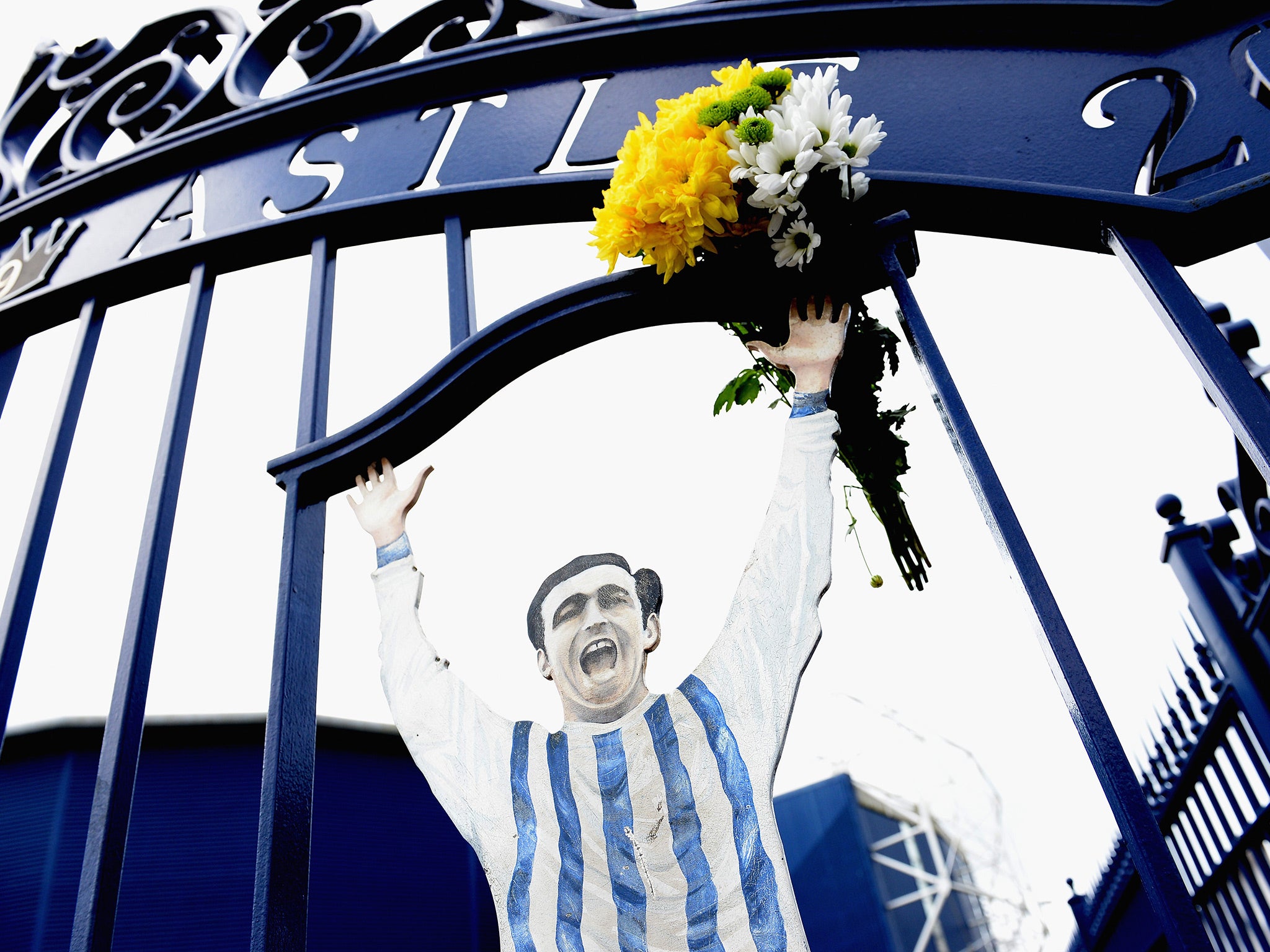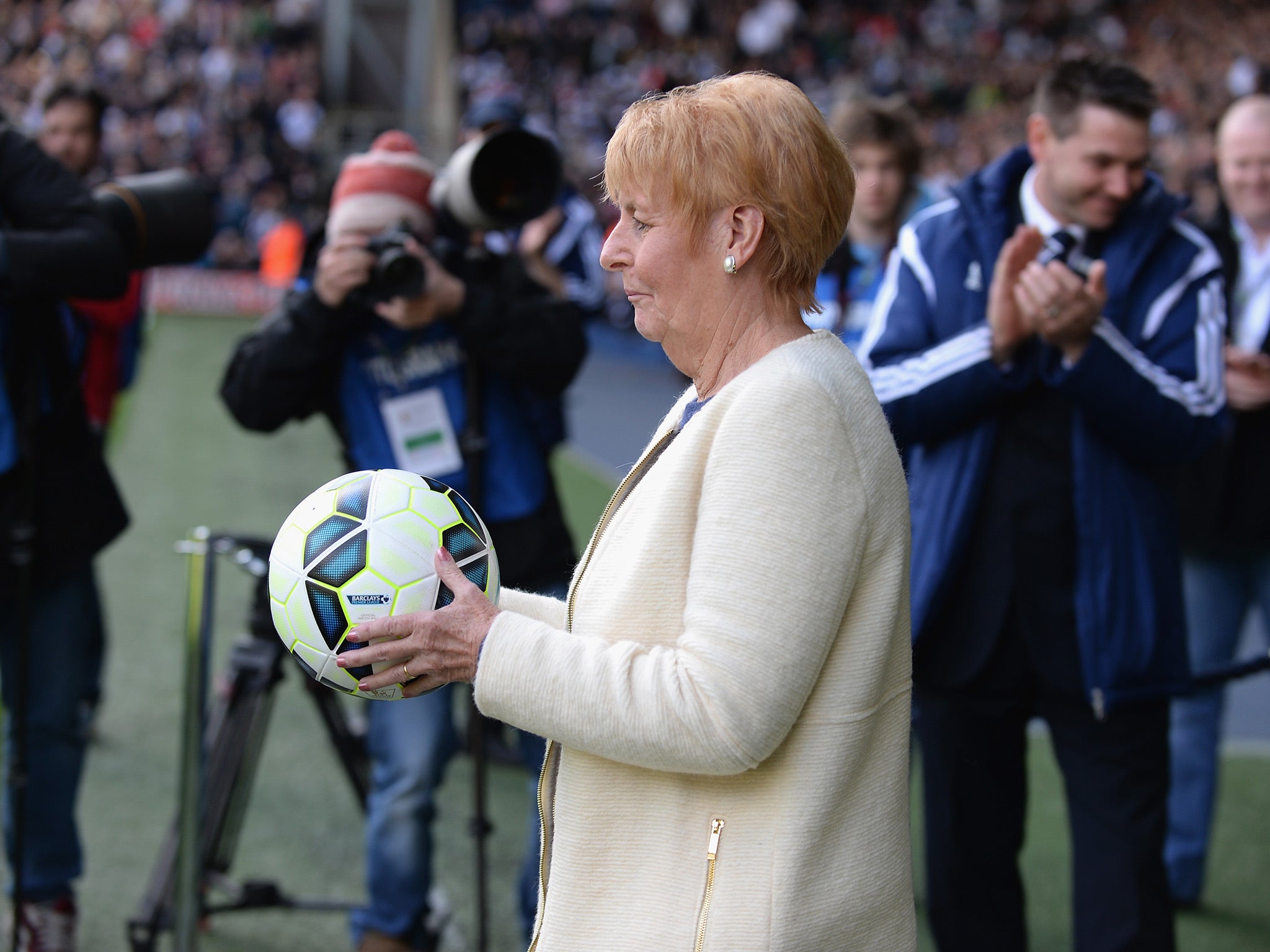15 years on from Jeff Astle's death, why are his family still waiting for head injury research?
The Football Association said they would do all they could for the late West Bromwich Albion striker's family, then offered tickets to an England friendly

Your support helps us to tell the story
From reproductive rights to climate change to Big Tech, The Independent is on the ground when the story is developing. Whether it's investigating the financials of Elon Musk's pro-Trump PAC or producing our latest documentary, 'The A Word', which shines a light on the American women fighting for reproductive rights, we know how important it is to parse out the facts from the messaging.
At such a critical moment in US history, we need reporters on the ground. Your donation allows us to keep sending journalists to speak to both sides of the story.
The Independent is trusted by Americans across the entire political spectrum. And unlike many other quality news outlets, we choose not to lock Americans out of our reporting and analysis with paywalls. We believe quality journalism should be available to everyone, paid for by those who can afford it.
Your support makes all the difference.It was 15 years ago on Thursday that Jeff Astle died and his family’s collective memory of how the Football Association came knocking at their front door after an inquest ruled that heading a football had killed him is as vivid as ever.
The executive who sat at Laraine Astle’s kitchen table told her that the governing body would do all it could. “Leave it with me.” A few days later a letter arrived - FA headed notepaper - telling Mrs Astle that if she and one of their two daughters wished to attend an England friendly, then tickets could be supplied. Needless to say, Mrs Astle figuratively told them what they could do with their largesse.
It was research - a rigorous, scientific effort which might have ensured the husband, father and West Bromwich Albion legend’s death was not in vain - that she and her daughters, Claire and Dawn, wanted and were promised, though 15 years on there has been the sum total of none.
Football’s obfuscation and buck passing goes on and our understanding of whether or not the act of repeatedly heading a water soaked leather ball in the 1960s and 1970s might have caused neurological failure has not even started. The Professional Footballers’ Association decided at the outset to compare the brains of 30 young players with the same size sample of non-players, though many of the players drifted out of the game and became uncontactable, so the study became useless. “A debacle” is Dawn Astle’s word for it, which pretty much sums it up.
The union’s inertia is pitiful, of course. We are talking about the well-being of its members. It should have committed every available hour to an understanding of whether or not this career choice had shortened their lives; whether and how today’s lighter footballs lessen the risk; the extent to which genetics inform the picture.
But the game’s rank lack of care for those former players now struggling in the way that Astle did is no less of a scandal - as the story of Nobby Stiles sad diminution has laid bare. Stiles’ family are – just like him - quiet, modest people, for whom publicly challenging the football monolith does not come so naturally. It has taken weeks for them to settle on the conclusion that speaking out might help make football investigate whether the sport has caused what the 74-year-old now faces.
The myriad private indignities are their narrative’s incidental details. 'Any chance of tickets to take my granddaughter to Old Trafford?', Stiles asked some years back. They will be full face value, he was told. This was the man who helped win Manchester United the European Cup and is integral to the legend on which the entire club is now built. “If you look at the best Manchester United team and it doesn’t have Nobby in it, something is missing,” Sir Alex Ferguson once said.
United pays some of its footballers £200,000 a week, so it could comfortably have afforded to ring fence 100 seats to ensure that when Nobby Stiles wanted to be there, then he could be. It actually costs nothing to arrange, quietly and without ceremony, for someone to visit the family and tease out a sense of what might be done for them. It costs the price of a stamp to send a note. The family disclosed publicly in 2015 that things were bad. Just two individuals, Sir Bobby Charlton and Wayne Rooney, took the time to call or write in response.

It took the marketing razzmatazz of the 1966 50th anniversary celebrations to get the Football Association in touch last year and while there was good meaning in that, the bedside manner was excruciating. ‘There is a means test form available,’ Stiles’ wife was told. A modicum of humanity would have told the FA that families can be reticent about applying for hand-outs and providing their own financial details in the process.
It was: ‘What’s the score?’ ‘1-0, dad.’ Then: ‘What’s the score?’ ‘1-0, dad.’ Sometimes you had to leave the room for a minute just to compose yourself.
The FA could have made discreet inquiries about arranging for one of their staff to see Stiles, spent a few hours listening and understanding the daily realities and then, before leaving, advised there was just a little paperwork needed, too. Unprompted, they could perhaps have seen to it that a little extra respite care was arranged.
Humanity is crushed daily as the football juggernaut powers on, wealthy enough to pay hundreds to finesse the message, while the family of the old man down the road faces its daily struggle to protect him from the unspeakable sorrows of a desperate illness.
“It was dad’s endless restlessness,” Dawn Astle recalls. “It was: ‘What’s the score?’ ‘1-0, dad.’ Then: ‘What’s the score?’ ‘1-0, dad.’ Sometimes you had to leave the room for a minute just to compose yourself.” Stiles son, Rob, knows what she means. “Mum was just tired,” he says. “She was tired.”
Join our commenting forum
Join thought-provoking conversations, follow other Independent readers and see their replies
Comments